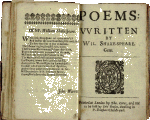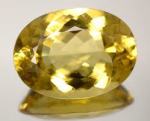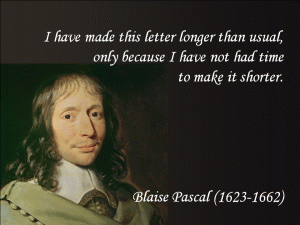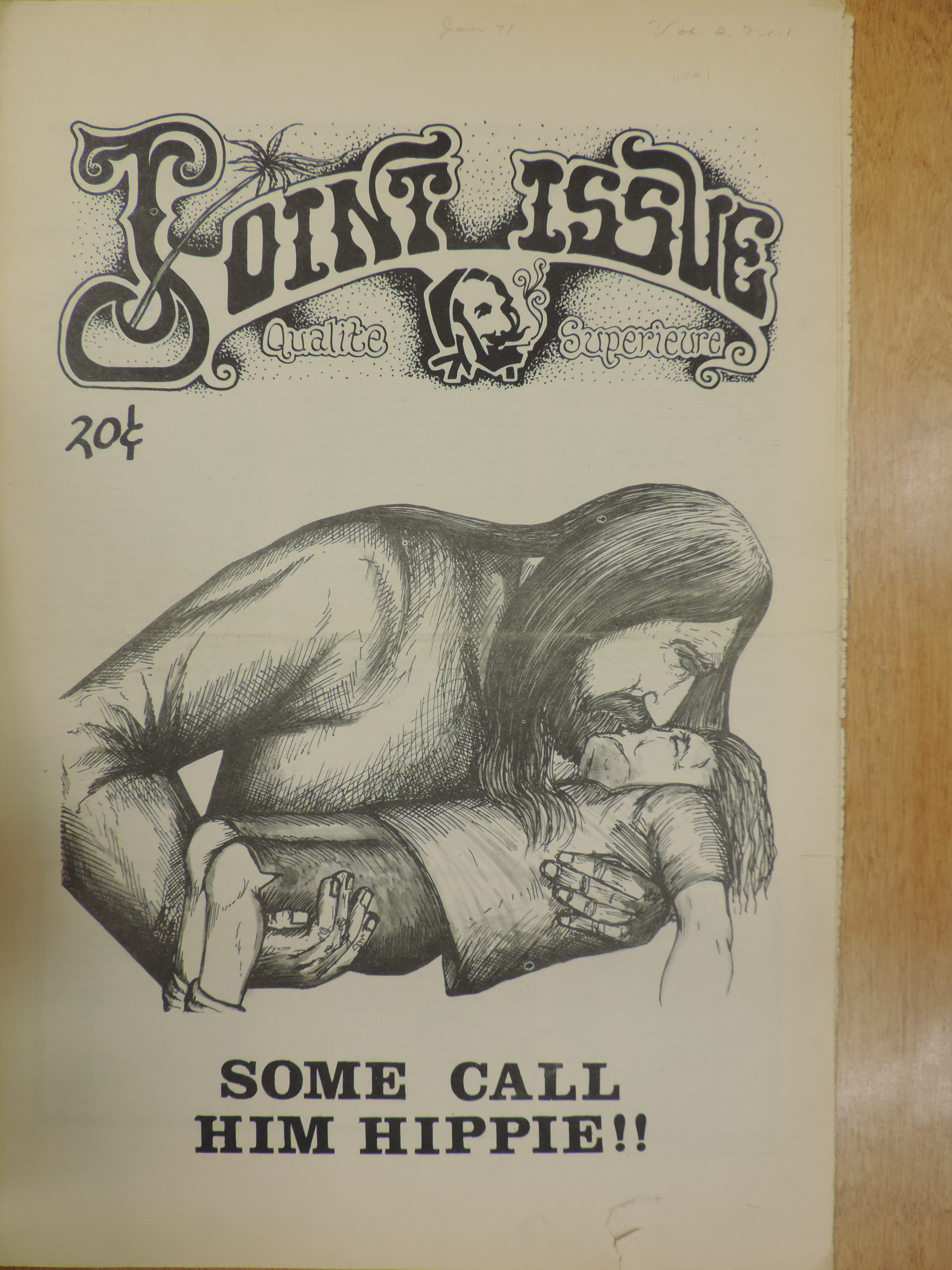 I know almost nothing about the man, William (Will) Shakespeare. Over the centuries, scholars have questioned many of the details of his life including his birth, circumstances of his death, his sexuality, and his authorship of various works. It seems it might not be possible for any modern person to know anything they can fully trust about the man himself.
I know almost nothing about the man, William (Will) Shakespeare. Over the centuries, scholars have questioned many of the details of his life including his birth, circumstances of his death, his sexuality, and his authorship of various works. It seems it might not be possible for any modern person to know anything they can fully trust about the man himself.
I’ve yet to take a college course on Shakespeare or perform in one of his plays. I have attended theatrical performances and watched movie enactments. Mostly, I’ve read his plays and his poetry, not much more. His work is suffused in unique hues, which easily identify his authorship. When reading Shakespeare, my interest is always in his unusual use of language, which appeals to me more than that of any other English-speaking writer or poet.
Shakespeare, whoever he was, had a gift for language which seems to have seduced nearly every person of letters I’ve ever met. He had a talent for drawing attention to the nuances of meaning through a peculiar juxtaposition of his singular syntax with unexpected context.
Shakespeare’s pen tugs and pulls on the corroded wires in our brains to make new schematics. His ink flushes out the rust and lubricates the synapses to enable fresh and completely radical transformations of our internal world. Best of all, his complex literary architecture provides a grand space where readers can safely explore many of the raw subtleties of life, love, power, sorrow, decline and death.
I love Shakespeare. Shakespeare’s language thrills me. I agree with Poet Laureate, Donald Hall, who once observed that Shakespeare’s writing is among the most densely strewn (with gems) of any literature in the world.
 In this article are collected — from Shakespeare’s Sonnets — over one-hundred and fifty of his brightest jewels and most dazzling gemstones. I don’t much care about the size or carat of a crystal — or its clarity. Color and cut are what fascinate me. If the excerpt doesn’t sparkle, it isn’t on my list.
In this article are collected — from Shakespeare’s Sonnets — over one-hundred and fifty of his brightest jewels and most dazzling gemstones. I don’t much care about the size or carat of a crystal — or its clarity. Color and cut are what fascinate me. If the excerpt doesn’t sparkle, it isn’t on my list.
The scintillas in this sample are in order of their appearance in the Sonnets. They make up a kind of Reader’s Digest abridgement, which should enable readers to glean some of Shakespeare’s best lines without having to spend several hours reading all one-hundred and fifty-four chapters.
From Shakespeare’s Sonnets:
…making a famine where abundance lies, thyself thy foe, to thy sweet self too cruel.
When forty winters shall besiege thy brow, and dig deep trenches in thy beauty’s field, thy youth’s proud livery, so gazed on now, will be a tatter’d weed, of small worth held.
Thou art thy mother’s glass, and she in thee calls back the lovely April of her prime.
Die single, and thine image dies with thee.
…sap check’d with frost and lusty leaves quite gone, beauty o’ersnow’d and bareness everywhere: then, were not summer’s distillation left, a liquid prisoner pent in walls of glass…
…thou art much too fair to be death’s conquest and make worms thine heir.
Sweets with sweets war not…

Is it for fear to wet a widow’s eye that thou consumes thyself in single life?
The world will be thy widow and still weep…
But beauty’s waste hath in the world an end, and kept unused, the user so destroys it.
For thou art so possess’d with murderous hate that ‘gainst thyself thou stick’st not to conspire, seeking that beauteous roof to ruinate which to repair should be thy chief desire.
Make thee another self, for love of me.
…violet past prime, and sable curls all silver’d o’re with white…
…barren rage of death’s eternal cold…
Thy end is truth’s and beauty’s doom and date.
…wasteful Time debateth with Decay to change your day of youth to sullied night…
…my verse…is but as a tomb which hides your life and shows not half your parts.
Sometime too hot the eye of heaven shines…
Pluck the keen teeth from the fierce tiger’s jaws, and burn the long-lived phoenix in her blood…
Yet, do thy worst, old Time: despite thy wrong, my love shall in my verse ever live young.
An eye more bright than theirs, less false in rolling, gilding the object whereupon it gazeth; a man in hue, all hues in his controlling, which steals men’s eyes and women’s souls amazeth.
With sun and moon, with earth and sea’s rich gems…
…not so bright as those gold candles fix’d in heaven’s air…
For all that beauty that doth cover thee is but the seemly raiment of my heart…
For at a frown they in their glory die. The painful warrior famoused for fight, after a thousand victories once foil’d, is from the book of honor razed quite, and all the rest forgot for which he toil’d.

…thy soul’s thought, all naked… …puts apparel on my tatter’d loving, to show me worthy of thy sweet respect…
And keep my drooping eyelids open wide, looking on darkness which the blind do see…
…like a jewel hung in ghastly night, makes black night beauteous and her old face new…
But day by night, and night by day, oppress’d? And each, though enemies to either’s reign, do in consent shake hands to torture me…
For thy sweet love remember’d such wealth brings that then I scorn to change my state with kings.
Then can I drown an eye, unused to flow, for precious friends hid in death’s dateless night, and weep afresh love’s long since cancell’d woe, and moan the expense of many a vanish’d sight…
Thou are the grave where buried love doth live…
Though thou repent, yet I have still the loss: the offender’s sorrow lends but weak relief to him that bears the strong offence’s cross. Ah! but those tears are pearl which thy love sheds, and they are rich and ransom all ill deeds.

Roses have thorns, and silver fountains mud; clouds and eclipses stain both moon and sun, and loathsome canker lives in sweetest bud.
I do forgive thy robbery, gentle thief, although thou steal thee all my poverty; and yet, love knows, it is a greater grief to bear love’s wrong than hate’s known injury.
Lascivious grace, in whom all ill well shows, kill me with spites; yet we must not be foes.
…thy beauty and thy straying youth, who lead thee in their riot even there where thou are forced to break a twofold truth; hers by thy beauty tempting her to thee; thine, by thy beauty being false to me.
If I lose thee, my loss is my love’s gain, and losing her, my friend hath found that loss; both find each other, and I lose both twain, and both for my sake lay on me this cross; but here’s the joy; my friend and I are one; sweet flattery! then she loves but me alone.
And darkly bright are bright in dark directed.
When to unseeing eyes thy shade shines so!
All days are nights to see till I see thee, and nights bright days when dreams do show thee me.
For nimble thought can jump both sea and land.
These present-absent with swift motion slide.
A closet never pierced with crystal eyes…
Mine eye’s due is thy outward part, and my heart’s right thy inward love of heart.
Or heart in love with sighs himself doth smother…

But thou, to whom my jewels trifles are, most worthy of comfort, now my greatest grief, thou, best of dearest and mine only care, art left the prey of every vulgar thief.
Against that time when thou shalt strangely pass and scarcely greet me with that sun, thine eye…
To leave poor me thou hast the strength of laws, since why to love I can allege no cause.
For that same groan doth put this in my mind; my grief lies onward and my joy behind.
So am I as the rich, whose blessed key can bring him to his sweet up-locked treasure, the which he will not every hour survey, for blunting the fine point of seldom pleasure?
The rose looks fair, but fairer we it deem for that sweet odor which doth in it live.
They live unwoo’d and unrespected fade, die to themselves. Sweet roses do not so; of their sweet deaths are sweetest odors made…
So true a fool is love that in your will, though you do any thing, he thinks no ill.
I am to wait, though waiting so be hell; not blame your pleasure, be it ill or well.

O, that record could with a backward look, even of five hundred courses of the sun, show me your image in some antique book…
Like as the waves make towards the pebbled shore, so do our minutes hasten to their end; each changing place with that which goes before, in sequent toil all forwards do contend.
Time doth transfix the flourish set on youth and delves the parallels in beauty’s brow, feeds on the rarities of nature’s truth, and nothing stands but for his scythe to mow…
O, no! thy love, though much, is not so great: it is my love that keeps mine eye awake…
Sin of self-love possesseth all mine eye and all my soul and all my every part; and for this sin there is no remedy, it is so grounded in my heart.
But when my glass shows me myself indeed, beated and chopp’d with tann’d antiquity…
And all those beauties whereof now he’s king are vanishing or vanish’d out of sight, stealing away the treasure of his spring…
…against confounding ages cruel knife, that he should never cut from memory my sweet love’s beauty, though my lover’s life…

When I have seen the hungry ocean gain advantage on the kingdom of the shore, and the firm soil win of the watery main, increasing store with loss and loss with store…
Ruin hath taught me thus to ruminate, that Time will come and take my love away.
Since brass, nor stone, nor earth, nor boundless sea, but sad mortality o’ersways their power, how with this rage shall beauty hold a plea, whose action is no stronger than a flower?
O, how shall summer’s honey breath hold out against the wreckful siege of battering days, when rocks impregnable are not so stout, nor gates of steel so strong, but Time decays?
O, none, unless this miracle have might, that in black ink my love may still shine bright.
…right perfection wrongly disgraced…
Why should false painting imitate his cheek and steal dead seeing of his living hue?
They look into the beauty of thy mind, and that, in guess, they measure by thy deeds; then, churls, their thoughts, although their eyes were kind, to thy fair flower add the rank smell of weeds…
For slander’s mark was ever yet the fair; the ornament of beauty is suspect, a crow that flies in heaven’s sweetest air.
When I perhaps compounded am with clay, do not so much as my poor name rehearse, but let your love even with my life decay…
For I am shamed by that which I bring forth, and so should you, to love things nothing worth.

…when yellow leaves, or none, or few, do hang upon those boughs which shake against the cold…
…as after sunset fadeth in the west, which by and by black night doth take away, Death’s second self, that seals up all in rest.
…the coward conquest of a wretch’s knife…
The worth of that is that which it contains, and that is this, and this with thee remains.
…for the peace of you I hold such strife as ‘twixt a miser and his wealth is found…
Why is my verse so barren of new pride, so far from variation or quick change? Why with the time do I not glance aside to new-found methods and to compounds strange?
Thou by thy dial’s shady stealth mayst know time’s thievish progress to eternity.
Thine eyes that taught the dumb on high to sing and heavy ignorance aloft to fly…
…being wreck’d, I am a worthless boat…
When all the breathers of this world are dead; you still shall live — such virtue hath my pen — where breath most breathes, even in the mouths of men.
…making their tomb the womb wherein they grew…
…upon thy side against myself I’ll fight, and prove thee virtuous…

Thy love is better than high birth to me, richer than wealth, prouder than garments’ cost, of more delight than hawks or horses be; and having thee, of all men’s pride I boast: wretched in this alone, that thou mayst take all this away and me most wretched make.
But what’s so blessed-fair that fears no blot? Thou mayst be false, and yet I know it not.
In many’s looks the false heart’s history is writ in moods and frowns and wrinkles strange…
How like Eve’s apple doth thy beauty grow…
They that have the power to hurt and will do none…
…who, moving others, are themselves as stone, unmoved, cold, and to temptation slow…
They are the lords and owners of their faces…
Lilies that fester smell far worse than weeds.
O, in what sweets dost thou thy sins enclose!
O, what a mansion have those vices got which for their habitation chose out thee, where beauty’s veil doth cover every blot…
The hardest knife ill-used doth lose his edge.
As on the finger of a throned queen the basest jewel will be well esteemed…
How many lambs might the stern wolf betray, if like a lamb he could his looks translate!
The teeming autumn, big with rich increase, bearing the wanton burden of the prime, like widow’d wombs after their lord’s decease…
…hope of orphans and unfather’d fruit…
…roses fearfully on thorns did stand…

Give my love fame faster than Time wastes life…
The mortal moon hath her eclipse endured…
So that eternal love in love’s fresh case weighs not the dust and injury of age, nor gives to necessary wrinkles place, but makes antiquity for aye his page…
…mine eye is in my mind…
My most true mind thus makes mine eye untrue.
Such cherubins as your sweet self resemble, creating every bad a perfect best…
If it be poison’d, ’tis the lesser sin that mine eye loves it and doth first begin.
But reckoning time, whose million’d accidents creep in ‘twixt vows and change decrees of kings, tan sacred beauty, blunt the sharp’st intents, divert strong minds to the course of altering things…
Love is not love which alters when it alteration finds…
Love’s not Time’s fool, though rosy lips and cheeks within his bending sickle’s compass come: love alters not with his brief hours and weeks, but bears it out even to the edge of doom.
Bring me within the level of your frown, but shoot not at me with your waken’d hate…
…to prevent our maladies unseen, we sicken to shun sickness when we purge…
…drugs poison him that so fell sick of you.
What potions have I drunk of Siren tears, distill’d from limbecks foul as hell within…
O benefit of ill! Now I find true that better is by evil still made better; and ruin’d love, when it is built anew, grows fairer than at first, more strong, far greater.
For if you were by my unkindness shaken as I by yours, you’ve pass’d a hell of time…
…how hard true sorrow hits…
‘Tis better to be vile than vile esteem’d…
For why should others’ false adulterate eyes give salutation to my sportive blood? Or on my frailties why are frailer spies, which in their wills count bad what I think good?
Unless this general evil they maintain, all men are bad, and in their badness reign.
Our dates are brief, and therefore we admire what thou dost foist upon us that is old…
To this I witness call the fools of time, which die for goodness, who have lived for crime.
…black beauty’s successive heir…
…fairing the foul with art’s false borrow’d face…

The expense of spirit in a waste of shame is lust in action…
…as a swallowed bait on purpose laid to make the taker mad…
Before, a joy proposed; behind, a dream. All this the world well knows; yet none knows well to shun the heaven that leads men to this hell.
And in some perfumes is there more delight than in the breath that from my mistress reeks.
Thou art as tyrannous, so as thou art, as those whose beauties proudly make them cruel…
…a torment thrice threefold thus to be cross’d.
The sea, all water, yet receives rain still…
…thus far for love my love-suit, sweet, fulfil.
Make but my name thy love, and love that still, and then thou lovest me, for my name is Will.
…to put fair truth upon so foul a face…
When my love swears that she is made of truth I do believe her, though I know she lies…
And wherefore say not I that I am old? O, love’s best habit is in seeming trust, and age in love loves not to have years told: therefore I lie with her and she with me, and in our faults by lies we flatter’d be.
…the manner of my pity-wanting pain…
As testy sick men, when their deaths be near, no news but health from their physicians know…
Only my plague thus far I count my gain, that she that makes me sin awards me pain.

Two loves I have of comfort and despair, which like two spirits do suggest me still: the better angel is a man right fair, the worser spirit a woman color’d ill. To win me soon to hell, my female evil tempteth my better angel from my side, and would corrupt my saint to be a devil, wooing his purity with her foul pride.
Yet this shall I ne’re know, but live in doubt, till my bad angel fire my good one out.
Those lips that Love’s own hand did make breathed forth the sound that said I hate.
I hate from hate away she threw, and saved my life, saying not you.
So shalt thou feed on Death, that feeds on men, and Death once dead, there’s no more dying then.
For I have sworn thee fair and thought thee bright, who art as black as hell, as dark as night.
O, how can Love’s eye be true, that is so vex’d with watching and with tears?
The sun itself sees not till heaven clears.
…all my best doth worship thy defect, commanded by the motion of thine eyes…
But, love, hate on, for now I know thy mind; those that can see thou lovest, and I am blind.
Who taught thee how to love thee more the more I hear and see just cause of hate?

For all my vows are oaths but to misuse thee…
For I have sworn thee fair; more perjured I, to swear against the truth so foul a lie.
I, sick, withal, the help of bath desired … but found no cure: the bath for my help lies where Cupid got new fire — my mistress’ eyes.
Billy Lee






















